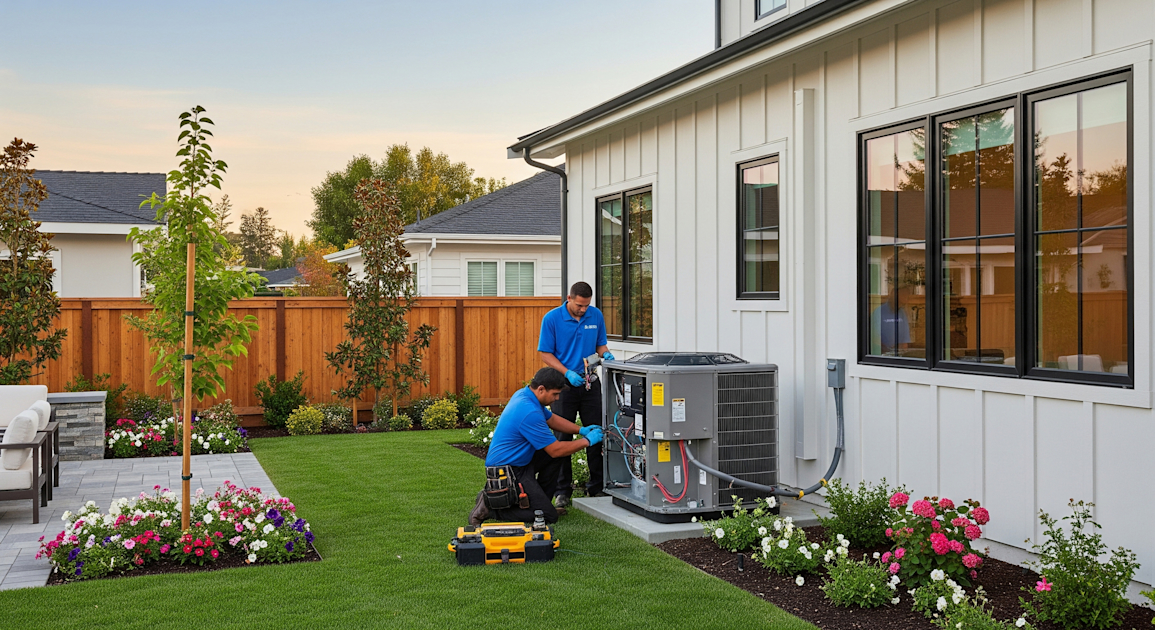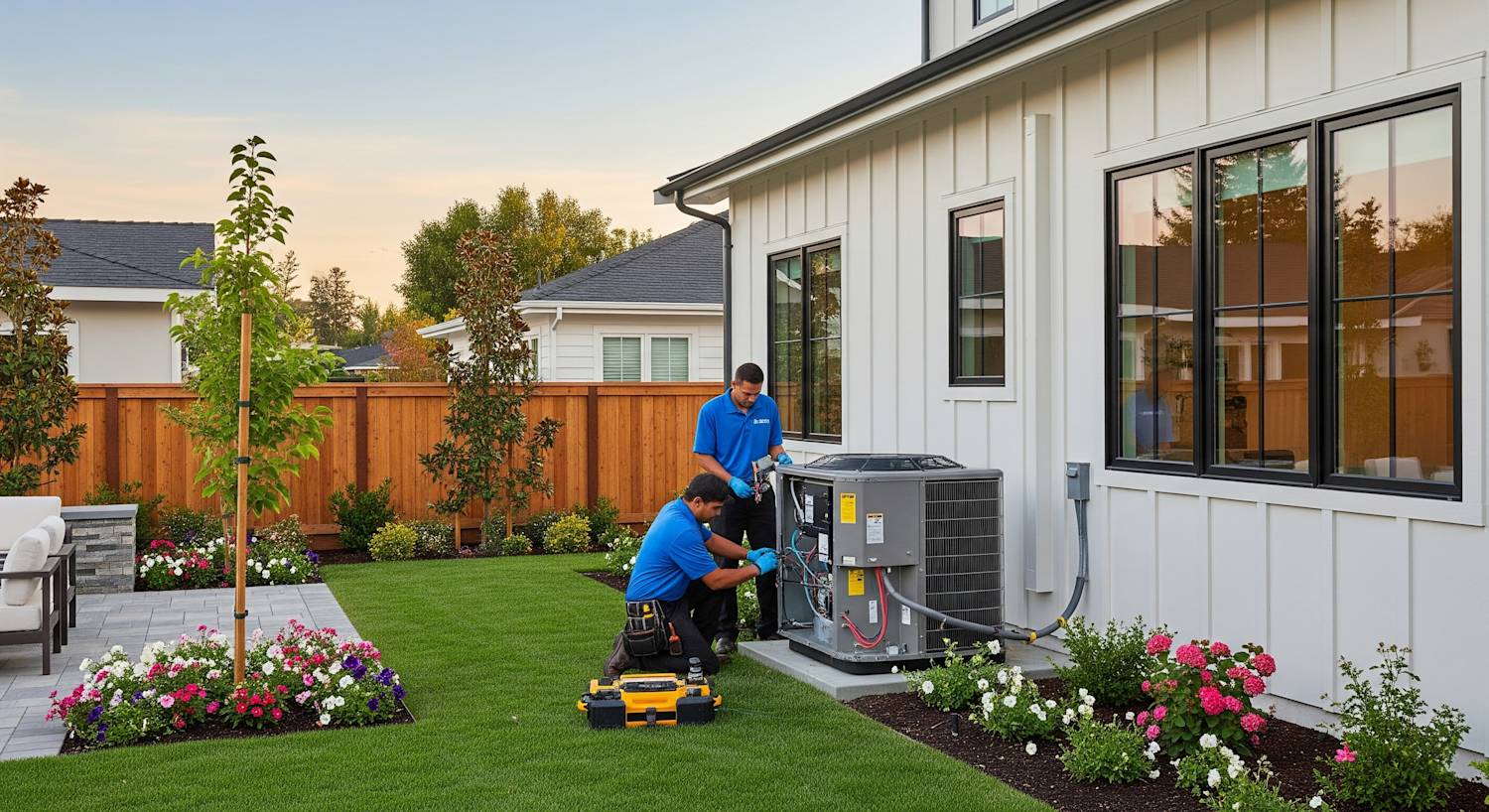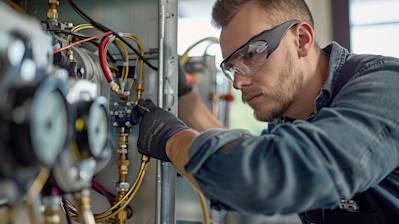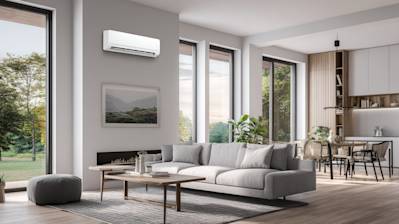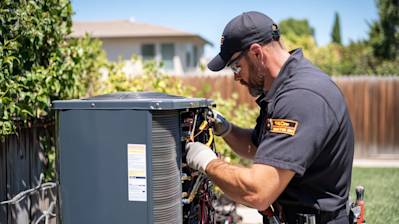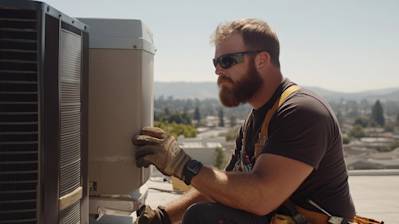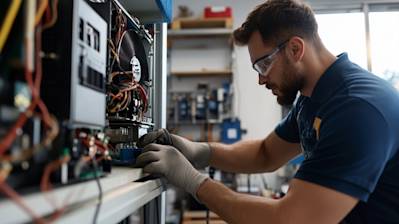The process of AC unit replacement is one that requires efficient planning, consideration, and expertise. Whether you’re having constant issues with your existing unit or it has simply reached the end of its lifespan, knowing the ins and outs of replacing your AC unit could benefit you greatly.
Importance of AC Unit Replacement
Air conditioning units are essential for maintaining a comfortable living environment. Especially in regions with extreme temperatures, proper AC functioning is crucial.
A worn-out or inefficient AC unit can cause discomfort in your home or office, run up your energy bills, and lead to further system damages. Therefore, understanding AC unit replacement becomes necessary when looking to maintain or improve your home or office comfort.
Signs Your AC Unit Needs Replacement
You don’t need to wait until your AC completely breaks down to discover that you need a new one. Here are some indications that you might need an AC unit replacement:
- Age: If your AC unit is older than 15 years, it's typically better to replace it than to repair it.
- Increased Energy Bills: Another sign of an aging AC is an unexplained increase in your energy bills.
- Frequent Repairs: If you are constantly needing to repair your AC unit, it might be more cost-efficient in the long run to replace it.
- Inconsistent Temperatures: If your AC isn’t cooling your home or office consistently, it could be a sign that it’s time for a new one.
Types of New AC Units
When you decide to replace your AC unit, it's important to know about the options available:
- Central Air Conditioners: These are the most common type of AC unit and they work by circulating air through a network of ducts and registers.
- Ductless Mini-Split Systems: These are great for cooling specific rooms or zones within your house. They are flexible and efficient.
- Window Units: These are a more affordable option and are designed to cool individual rooms.
- Portable Units: Best suited for single rooms, these units are easy to move and install.
Choosing The Right AC Unit
When looking for an AC unit replacement, there are a few key factors to consider:
- Size: Choose a unit that's the right size for your property. An AC that's too small won't cool your space efficiently, while an oversized unit will cool too quickly without properly dehumidifying the room.
- Energy Efficiency: Look at the Seasonal Energy Efficiency Ratio (SEER) rating. The higher the SEER rating, the more energy-efficient the unit.
- Cost: Consider both the initial cost of the AC unit and the operational costs. An energy-efficient unit may cost more upfront but will save you money in the long run.
- Maintenance: Choose a unit with cost-effective maintenance requirements.
- Installation: Consider the cost and complexity of the installation process.
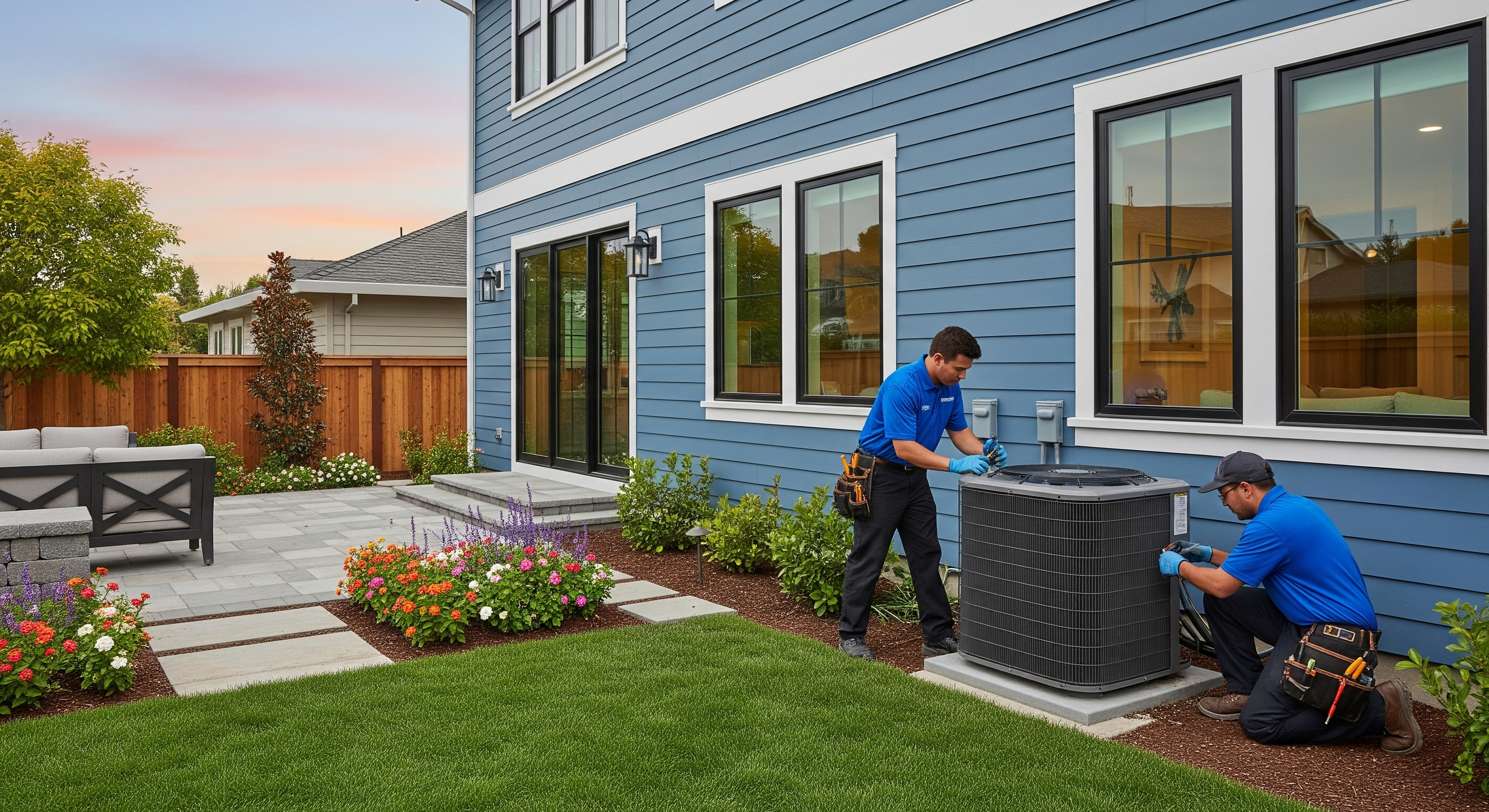
Frequently Asked Questions about Ac Unit Replacement
What are the signs that my AC unit needs replacing?
Some tell-tale signs that you might need an AC unit replacement include unusual noises, constant need for repairs, increased energy bills, and poor cooling capabilities. If your unit is also over 10 years old, it might be time to consider a replacement.
How much does AC unit replacement cost?
The cost for replacing an AC unit can vary widely depending on the brand, capacity, and labor costs in your area, but it's typically between $2,500 to $7,500. To receive a more precise estimate, you should get in touch with local HVAC professionals.
What is SEER and why does it matter in choosing a replacement AC unit?
SEER stands for Seasonal Energy Efficiency Ratio and it measures the efficiency of your AC unit. A higher SEER rating indicates more energy efficiency, which means lower electricity costs. While choosing a replacement AC unit, you should look for a unit with a high SEER rating.
How often do AC units generally need to be replaced?
Most AC units last between 10 to 15 years. However, with proper maintenance, premium models might last longer. If your AC unit is older than this, you might want to start thinking about a replacement.
Can I replace my AC unit myself?
While it's technically possible to replace your AC unit yourself, it's generally not advised unless you have significant HVAC experience. Installing an AC unit improperly could lead to more costs down the line and may void the warranty on the unit.
What factors should I consider when choosing a new AC unit?
When choosing a replacement AC unit, consider the size and cooling capacity of the unit that's appropriate for your space. Also, consider the SEER rating, the unit's warranty, your budget, and the overall expected longevity of the unit.
Does it make sense to repair my old AC unit or should I just replace it?
If the cost of repair is less than half of the cost of a new unit and the AC unit is less than 10 years old, it might make sense to repair it. However, if the unit is old and frequently needs expensive repairs, it may be more economical in the long run to replace it.
If I replace my AC unit, should I also replace my furnace?
It's not always necessary to replace both. However, if your furnace is also old and less efficient, replacing it along with your AC unit can lead to better efficiency and cost savings over time. Consult with a professional HVAC contractor to make the best decision.
Is a more expensive AC unit always the better option?
An expensive AC unit often has a higher SEER rating, which can result in significant energy savings over the course of its life. However, you should also consider other factors such as your living situation and climate, the unit's warranty, and potential maintenance costs. In some cases, a slightly cheaper model may be a better fit for your needs.
What can I do to prolong the life of my new AC unit?
Regular cleaning and maintenance are key to prolonging the life of your AC unit. Keep the area around your unit clear, change the air filter regularly, schedule regular professional maintenance, and ensure your home's insulation is sufficient.
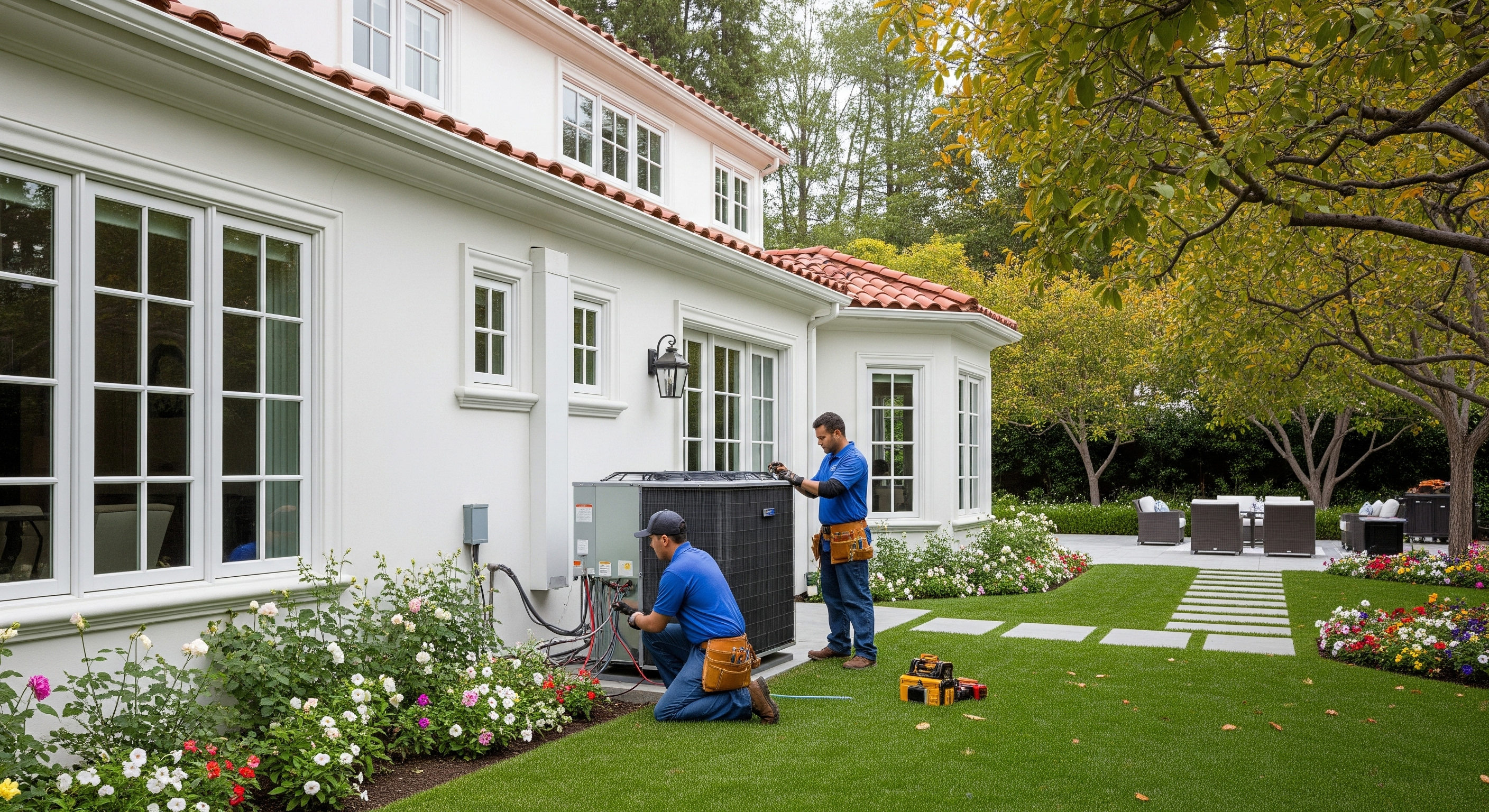
Pros of AC Unit Replacement
Energy Efficiency
Lower Energy Bills
One of the biggest pros of AC unit replacement is the potential for lower energy bills. Newer models of AC units are designed to use less energy while providing the same level of cooling power. This reduction in energy usage can translate to significant savings on your energy bills over time.
Compliance with Energy Regulations
In recent years, regulations require AC units to be more energy efficient. That way, if you replace your old AC unit, you not only adhere to the regulations, but you are also making an environmentally conscious decision.
Improved Cooling Performance
Consistent Cooling
New AC units can offer more consistent and reliable cooling performances. Older units may struggle to maintain a consistent temperature, leaving certain areas of your home warmer than others. With a new AC unit, your home should be easily and evenly cooled.
Faster Cooling
New AC units can also cool your rooms faster than older models. This can be a bonus during hot summer months when you want to cool down your home quickly.
Advanced Features
Smart Home Compatibility
Many modern AC units are equipped with smart features such as smart thermostats and compatibility with virtual assistants like Alexa and Google Home. These features enable you to control your AC remotely, providing greater convenience and control over your home's climate.
Quieter Operation
Newer AC models are typically quieter than older models. This means that you can keep your home cool without having to deal with a lot of noise from your AC unit.
Cons of AC Unit Replacement
High Upfront Costs
Cost of the Unit
One of the major cons of replacing your AC unit is the high upfront cost. Newer AC units, especially those with advanced features and high energy-efficiency ratings, can be expensive to purchase.
Installation Costs
In addition to the cost of the unit itself, you may also have to pay for professional installation. This can be a significant expense, particularly if your home requires substantial changes to accommodate the new unit.
Potential for Overwhelming Choices
Variety of Models
There are numerous models of AC units available on the market today, each with its own set of features and specifications. It may be overwhelming for some homeowners to decide which unit is the best fit for their home and their specific cooling needs.
Numerous Brands and Reviews
Also, there are many brands and reviews to go over. The time it takes to sift through all this information can be daunting for most homeowners.
Unexpected Replacement
Unplanned Expenses
Sometimes, AC unit replacements are unexpected due to mechanical failures, malfunctions, or sudden breakdowns. During these circumstances, homeowners may not have budgeted for a replacement unit, making the expense even more burdensome.
Disruption of Comfort
An unexpected AC unit replacement can also disrupt your home's comfort levels. For instance, you may have to deal with hot temperatures while waiting for the replacement AC unit to be installed.
Myths and Misconceptions about AC Unit Replacement
Myth 1: "You Only Need to Replace Your AC Unit When It's Broken Beyond Repair"
Misconception Detail:
A very common misconception is that an AC unit should only be replaced when it completely stops working or is beyond repair. But in reality, this is not always the most cost-effective or efficient approach. If your AC unit is older and requires frequent repairs, it’s frequently more economical to replace it, even if it still functions. Constantly patching up an old, inefficient unit can lead to costly energy bills and repair costs.
On the other hand, modern AC units are designed to be more energy-efficient and effective in cooling. So, replacing an old AC unit can significantly reduce energy consumption, leading to more sustainable living and lower energy bills.
Myth 2: "All AC Units Are the Same"
Misconception Detail:
This myth accompanies many home appliances and it’s certainly not true for air conditioning units. All AC units are not created equally. There are various types of air conditioning systems available in the market, including window units, central air conditioners, portable units, and ductless mini-split systems.
Each type has its own set of pros and cons, and is designed to meet specific cooling needs. For instance, if you’re looking to cool a single room, a window unit or a portable unit may suffice. But for larger spaces or entire homes, you might need a central air conditioning system or a ductless mini-split system. The energy efficiency, cooling capacity, and cost can vary significantly among different units.
Myth 3: "Bigger AC Units Are Always Better"
Misconception Detail:
The phrase "bigger is better" doesn’t always hold true, especially for air conditioning units. A common myth is that a bigger AC unit will cool a space faster and more efficiently. But in fact, an oversized AC unit can cause problems like frequent on-off cycling, which can wear down the system and increase repair needs.
Moreover, an oversized AC fails to properly dehumidify the space, leaving you with a cold, clammy environment. On the other hand, an undersized unit will struggle to effectively cool a space, leading to higher energy consumption. Therefore, it’s crucial to have a professional correctly size the unit to ensure optimal performance and comfort.
Myth 4: "Air Conditioner's Sole Purpose is to Cool Your Home"
Misconception Detail:
While the primary function of an air conditioner is to cool your space, it does much more than just reducing the temperature. Apart from cooling, AC units help decrease the humidity levels in your home, providing a more comfortable environment. High humidity levels can give a sticky, uncomfortable feeling, even if the temperature is set right.
Furthermore, many modern ACs come with built-in air filtration systems that help improve indoor air quality by capturing dust, allergens, and other airborne particles. Therefore, an air conditioning system plays a crucial role in creating a comfortable and healthy living environment.
Myth 5: "You Can Install an AC Unit on Your Own"
Misconception Detail:
While it might be tempting to save some money by installing an AC unit by yourself, it’s not usually a good idea unless you’re a qualified HVAC professional. Installation of an AC unit is a complex process that involves handling refrigerant, electricity, and often, complex ductwork.
Improper installation can lead to various problems, including reduced system efficiency, frequent breakdowns, and even potential safety hazards. Hence, it’s highly recommended to hire a professional HVAC technician for AC unit installation to ensure the equipment operates at peak efficiency and the manufacturer's warranty terms are met.
Summary
So, if you're dealing with a faulty air conditioning system, remember that an AC Unit Replacement can be the most practical and economical choice in the long term. Even though it might seem like a significant investment initially, it is likely to save you from recurring repair costs and higher energy bills. The key is to consult with a reliable HVAC expert who can guide you on whether it's best to repair or replace your system.
Choosing an AC Unit Replacement comes with its set of advantages. You will notice improved efficiency, which leads to more satisfactory cooling and lesser energy consumption. Plus, a new unit will also come with a warranty, eliminating the need for immediate out-of-pocket expenses for repairs. So, if your AC has been giving you trouble, it might be time to consider a replacement.
Having your AC unit replaced can ultimately lead to improved indoor comfort, especially during the hot summer months. So, don't wait until your old AC unit breaks down entirely, take a proactive approach. An AC Unit Replacement can be a step towards a cooler and more comfortable living environment, contributing to a better quality of life. So, get your air conditioner spick and span and ready to battle the heat!
About AirFlow Heating & Air
At AirFlow Heating & Air, locally situated at Sacramento, CA, we are not just a team, but a growing family. We've been consistently providing top-notch HVAC services within the region for several decades, earning the trust of our valued customers. Meeting your heating and cooling needs is our passion, and we put an emphasis always to offer the best solutions for your home or business. We are a squad of licensed, highly skilled, and experienced experts who've seen it all, and fixed it all. Our team's deep-seated connection to Sacramento drives us to go above and beyond to ensure we deliver the most efficient, reliable, and quality services. Caring for your comfort is our mission at AirFlow Heating & Air. Let's turn your HVAC worries into smiles!

